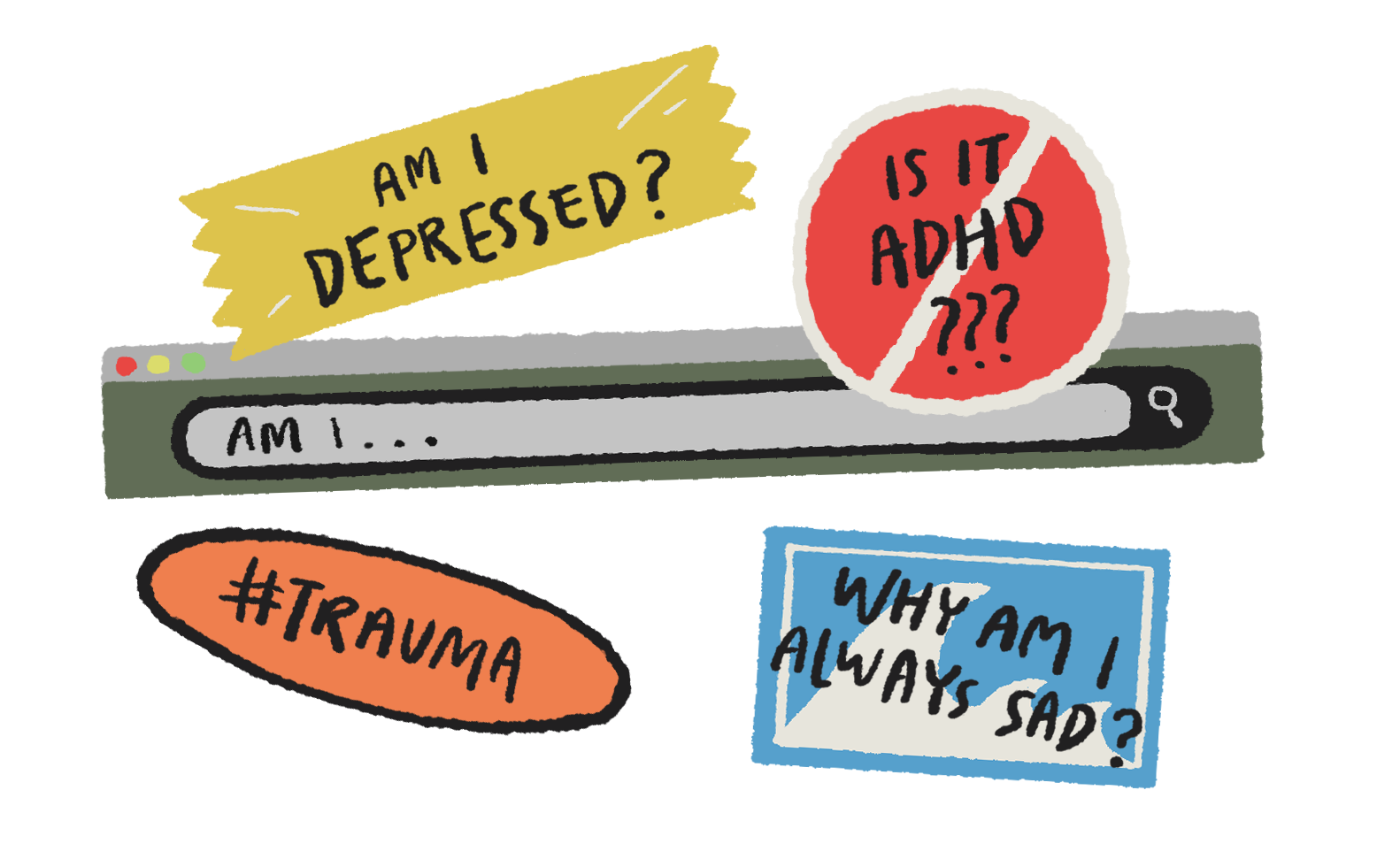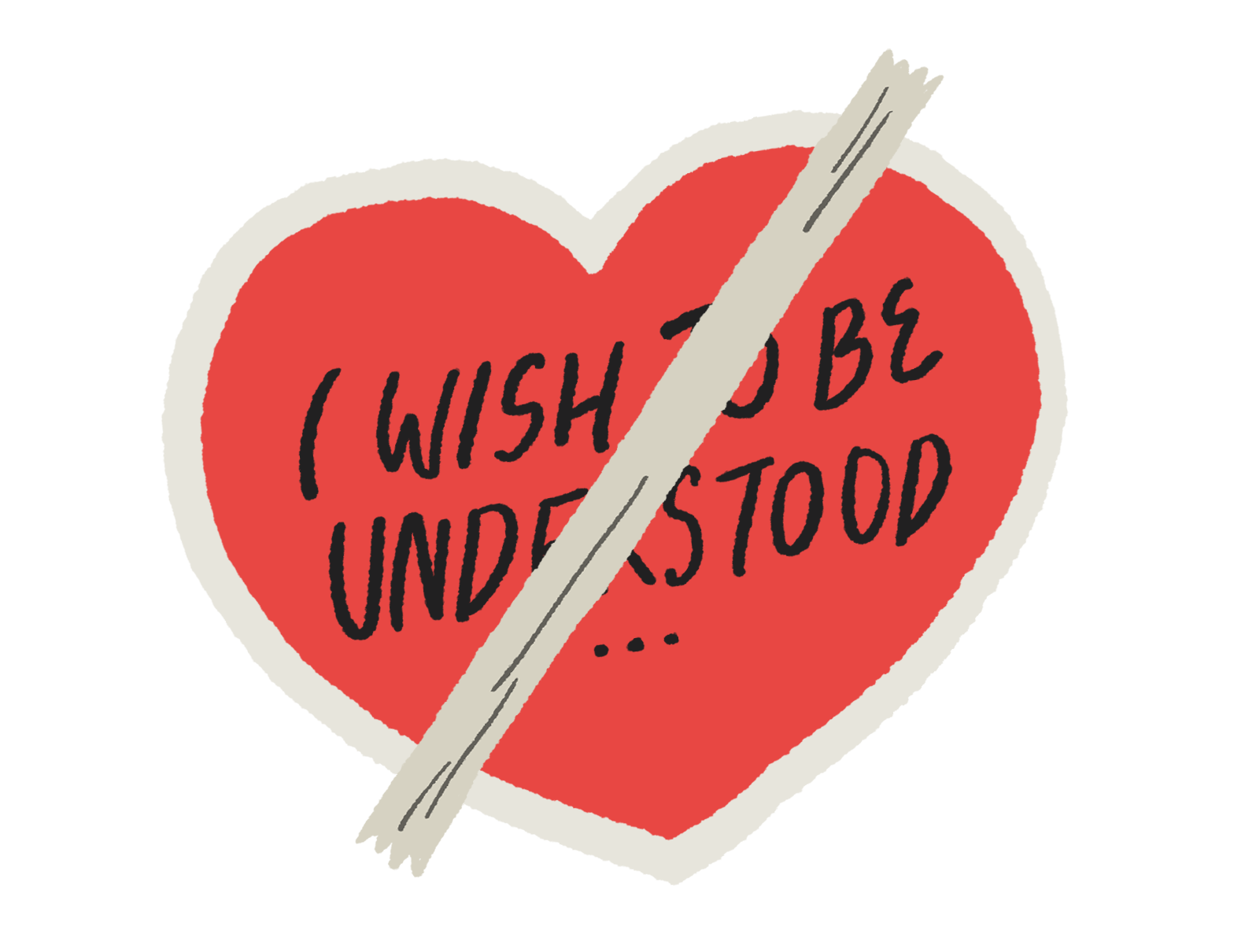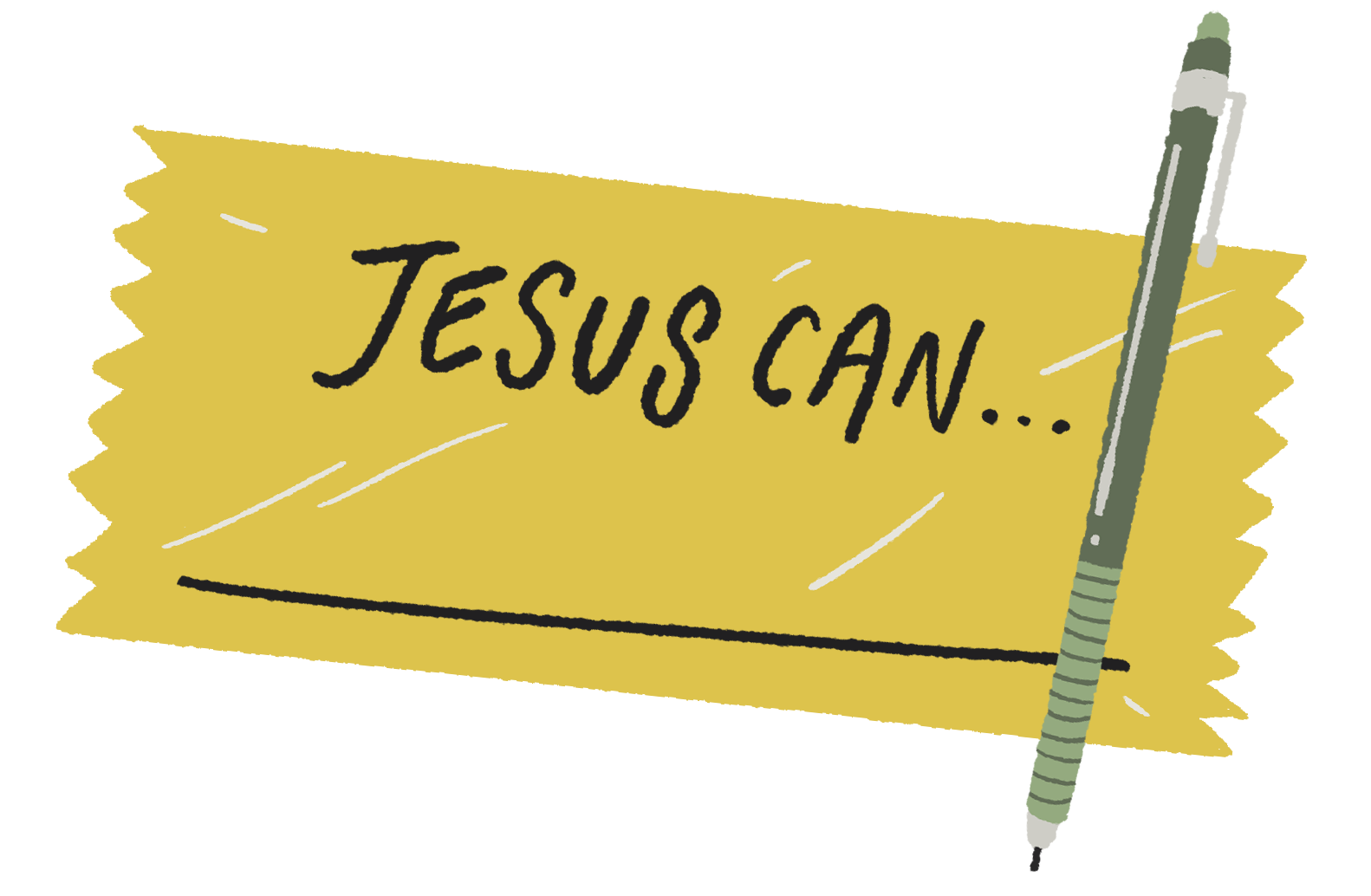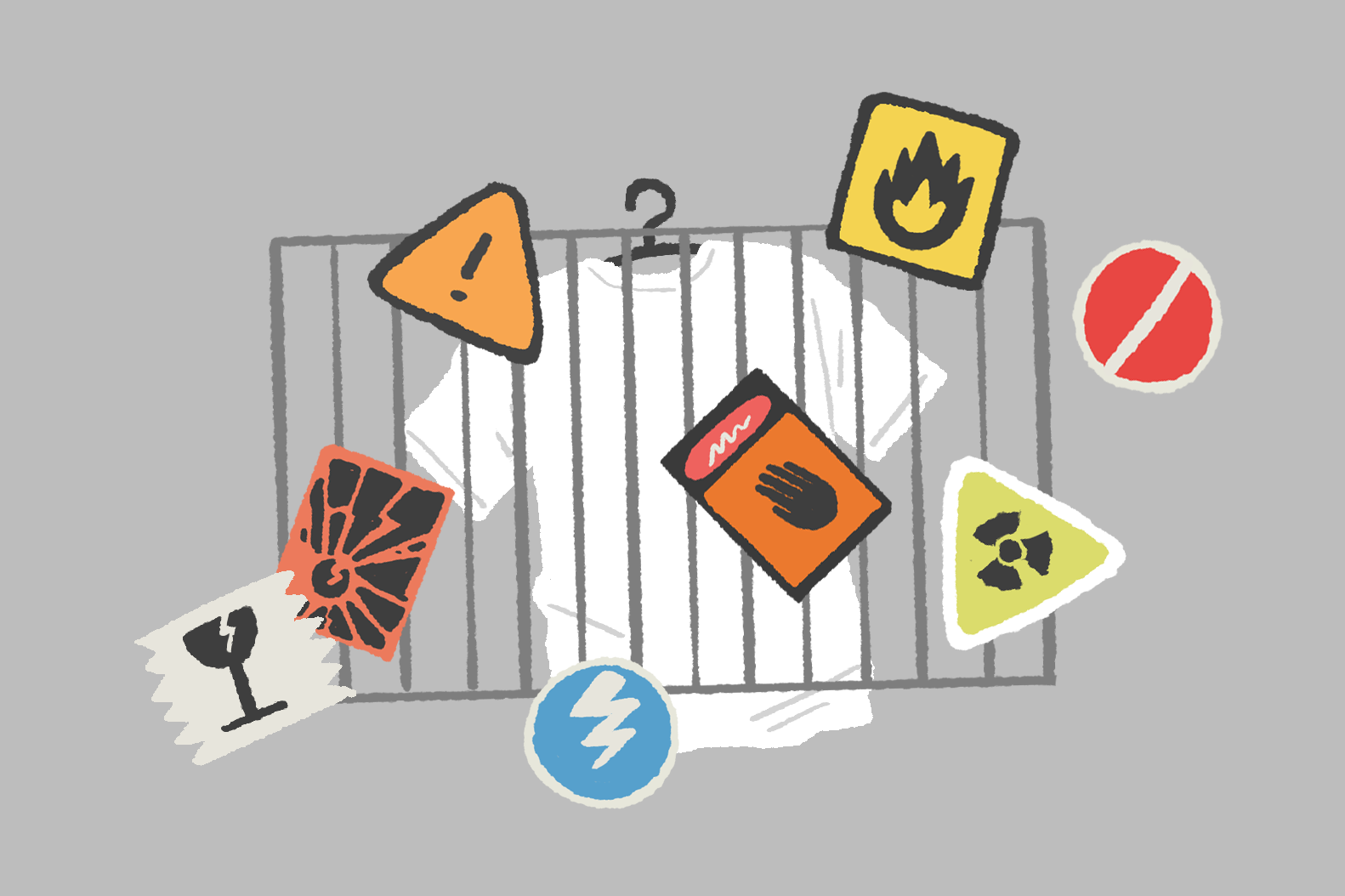- “I have no appetite… I think I’m depressed.”
- “I can’t stand the room being so messy… maybe I have OCD.”
- “This guy always fidgets around when people talk… maybe he has ADHD.”
Have you heard of such statements being thrown around casually? Or have you said something similar before?
While there certainly is a loving way to respond when we hear such comments from the people around us, I wonder if it is actually healthy when we are the ones who make such statements.
Destigmatising mental health challenges and raising awareness about them are definitely good. But where’s the line between that and overreading into our circumstances?

Researchers have termed this phenomenon as “prevalence inflation”. They found that mental health awareness efforts might cause individuals to overinterpret milder forms of distress in their lives as mental health problems. Self-labelling could thus potentially exacerbate their symptoms.
In the age of social media where people of influence are increasingly opening up about their mental health struggles (and this should be a good thing), one side effect is that their followers may take away wrong insights or lessons or worse, self-diagnose wrongly.
Consider also that mental health content is its own genre on social media. When you search up “depression”, “trauma” or “anxiety” on TikTok, you will find not only decent tips on managing these struggles, but also more questionable kinds of content such as people filming their anxiety attacks and analysing their trauma.
How wise is it to so openly discuss mental health struggles when we are not professionally trained in this field? Where do we draw the line between speaking up for mental health awareness and less nobler reasons for such discourse?
We need to consider these things because consuming such content without discernment can turn your social media experience into a chamber of misery. People might feel heard and related to, but it does not necessarily point them to the proper help that they need.
The desire to be understood
This phenomenon doesn’t just pertain to mental health, it’s in the work front as well. We see it in quiet quitting, chaotic working and rage applying, for instance.
The thing is, every generation deals with workplace challenges. These are definitely not problems that are unique to millennials or Gen Z. So why are we suddenly starting to term all these problems now?

At the root of it, I believe we do so out of a shared desire to be heard, to be understood and to be empathised with.
This would perhaps explain why there is a growing trend of people sharing about their mental health struggles, breakup stories, retrenchment experiences and even bad Carousell encounters on social media.
That isn’t necessarily a bad thing; there is definitely room for us to identify our struggles and understand ourselves more so that we can better navigate through life.
Always seeking to be validated but remaining ignorant about how to move forward will bring us nowhere.
As someone who has actually been diagnosed with mental health struggles, I can certainly relate to Selena Gomez’s response when she was diagnosed with bipolar disorder in 2018.
“I felt a huge weight lifted off me when I found out,” said Selena. “I could take a deep breath and go, ‘Okay, that explains so much.’”
Identifying and pinpointing life struggles can be helpful. It helps us to make sense of what we are going through and shows us that we are not alone.
In doing so, we also get to glean from other people’s experiences and figure out the next steps forward for ourselves.
Yet, it is also important to make sure that we do not stay in the place of being related to. Always seeking to be validated but remaining ignorant about how to move forward will bring us nowhere.
The temptation to blame
If we take too much comfort in just having our struggles heard, we can fall into the trap of feeling entitled simply because we deal with these struggles.
Some may take mental health challenges as an excuse to not take responsibility for their emotions. Others may take self-labelled ADHD as an excuse to not pay attention when other people are talking.
I believe that this is not only an irresponsible way of dealing with our struggles, but it also trivialises the challenges of those whose lives are really affected by their conditions.
If we are not careful, we might trap ourselves in this place of sulking. We feel miserable about ourselves and we feel like the world owes us something to make us feel better.
We blame society for causing our struggles, we blame other people for causing our traumas, and we blame the world for not doing enough to help people like us.
Blame, blame — be lame. We become crippled when it comes to facing our problems, and reluctant to make changes for the better.
The danger of a lonely echo chamber
Some time ago, my counsellor suggested that I might have a certain psychological disorder based on certain experiences that I shared with her. Since then, I had struggled to shake off the labels I took on in that conversation.
My counsellor would always tell me that it’s just a condition and that it doesn’t define me. My response would always be, “I know it’s just a condition, but it affects almost everything in my life. I find it hard to disconnect it from who I am. It almost feels like it’s a part of me.”
The more I researched on this disorder, the more I resonated with the symptoms. All the challenges I faced seemed to align more and more closely with the characteristics of this disorder, and I simply felt more and more stuck.
It felt almost like a self-fulfilling prophecy that I was falling into, but it was one that I felt powerless to get out of.
But in December, I attended the Count Me In Christmas Celebration Concert organised by 还好吗 (hhm.sg). One of the worship songs they sang at the concert spoke to my soul in a profound way.
耶稣能够叫一切都更新
(Jesus can make everything new)
耶稣能够体会你的心情
(Jesus understands how you feel)
耶稣能够改变你的曾经
(Jesus can change your past)
耶稣爱你,耶稣疼你
(Jesus loves you, Jesus cares for you)
耶稣能造一个全新的你
(Jesus can give you a new life)
Hearing this song reminded me of 2 Corinthians 5:17. Indeed, I am a new creation in Christ!

Even though there were past experiences that shaped who I am today, even though I might be dealing with a disorder — I know that they do not define my destiny.
These labels might have very real effects on my life now and it might take me some time to overcome them, but I hold on to the promise they do not have a hold on me because Jesus has set me free.
Most importantly, I know that God does not see me through these labels. Because of the cross, God sees me through the righteousness of Christ.
The words spoken over Jesus are now my new identity: “This is my Son, whom I love; with him I am well pleased” (Matthew 3:17).
This is the only label that matters, and it is one that brings freedom. I am a child of God, liberated from striving for love and acceptance, because I already have it. My Father is already well pleased with me.
Whether you are dealing with actual diagnoses or have been searching for validation through self-labelled terms, you need to know that you are not defined by these labels.
They might be able to provide explanations for some struggles in your life, but there is so much more to your life.
So don’t be caged in by these labels, and know that at the end of the day — there is always hope.
- What are some labels that you carry?
- What does the Bible say about who you really are?
- What does freedom in Christ look like for you today?









